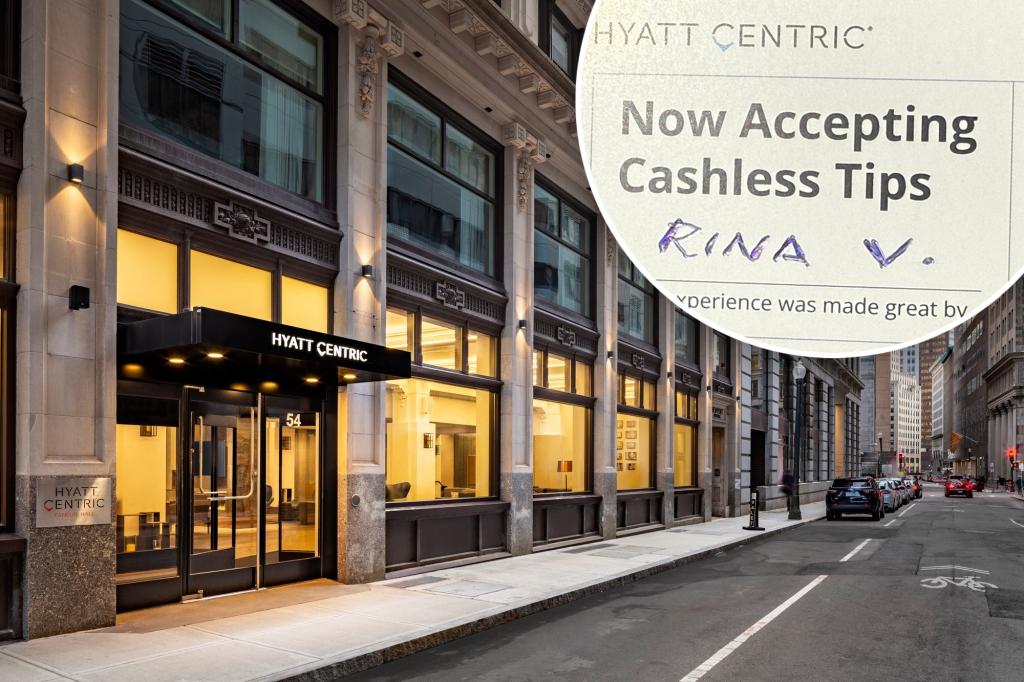Gratuities have become a hot topic as begging for tips has become a common occurrence in various settings, including coffee shops, fast food restaurants, airlines, and amusement parks. While it is traditional to slip a few bills to a hotel clerk for better treatment, some luxury properties are now directly asking guests for additional financial consideration at the front desk, leading to complaints and confusion among travelers.
One example of this troubling trend was reported by a reader of popular travel blog A View From The Wing, who received a slip of paper pushing tipping along with their key when checking into the Marriott LaSalle in Bryan, Texas. Another reader reported a similar experience at the Hyatt Centric Faneuil Hall in Boston and expressed their surprise as they did not expect to encounter such a request at these upscale properties.
While the tradition of tipping the front desk for a room upgrade is common in Las Vegas, the practice at these luxury properties seems to lack transparency and clear benefits for guests. Instead of receiving an upgrade or special treatment, guests are expected to hand over money to the front desk clerk without a clear reason for doing so. This has led to criticism of the policy as a way of getting “free money from stupid people,” according to some travel bloggers.
Complaints about being pressured to leave extra money have also been reported in various establishments with a nearly non-existent level of service. A survey conducted by Bankrate in June found that 32% of Americans were annoyed by pre-entered tip screens, while 30% thought that the current tipping culture has gone out of control. These findings indicate a growing dissatisfaction with the expectation of tipping and the pressure to leave gratuities in various situations.
The issue of tipping has raised concerns among travelers and consumers, who feel that the practice has become excessive and gratuitous in modern times. The trend of asking guests for additional money at luxury properties without clear benefits has added to the negative perception of tipping in general. Critics argue that tipping should be based on quality of service, rather than a compulsory expectation, to ensure that gratuities are given willingly and fairly.
In conclusion, the practice of requesting tips has become rampant in various industries, leading to complaints from consumers who feel pressured to leave gratuities even in situations where service is lacking. The trend of direct appeals for additional financial consideration at luxury properties has sparked criticism and confusion among guests, who question the benefits of tipping in these contexts. As dissatisfaction with the tipping culture grows, it is important for establishments to reconsider their practices and ensure that gratuities are given voluntarily and based on quality of service rather than compulsory requests.


